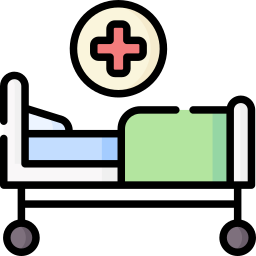
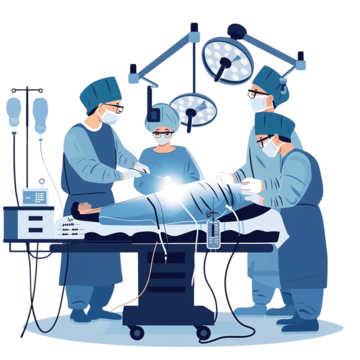
Led by Dr. Kameshwar Prasad- Director & HOD of Neurology who is having 40+yrs of experience working with AIIMS, New Delhi, and was Chief of the Neurosciences Department at the reputed institute gives the department all the leadership it requires for a better outcome. Being located in the heart of South Delhi the department also provides convenience and accessibility for patients seeking neurological services in the North India Zone.
The neurology team constitutes names like Dr. Kameshwar Prasad- Director & HOD, Dr. Madhuri Behari- Director, Dr. Renu Achitani- Additional Director, Dr. Dhruv Zutshi- Senior Consultant and in neurosurgery Dr. Rana Patir- Director- Neurosurgery and Dr. Anurag Gupta- Senior Consultant.
Neurological disorders can encompass a wide range of conditions, from mild to severe migraines and epilepsy to spinal cord injuries and brain tumors. It's reassuring to know that our team of neurologists and neurosurgeons is capable of handling any kind of neurological disorder. This expertise ensures that patients receive comprehensive care and appropriate treatment options.
Why Choose Us
-
✅ Top 5+ Specialists team members
-
✅ 40+ Years of experience expert
-
✅ 24/7 Hours Services
-
✅ Green OT Certification
-
✅ NABH Certified Nursing Excellence
-
✅ Ambulatory service for emergencies
-
✅ Ranked No. 7 in Delhi’s Best Private Hospital by The Week Magazine Survey, 2019
-
✅ Center of excellence for neurosurgery and neurology
-
✅ Dedicated neurosurgery and neurology ICUs
Our Team of Experts
FAQs
-
What is the difference between Neurologist & NeurosurgeonA neurologist is an expert in the medical management of all neurological disorders which not required surgery. The neurologist closely works with neurosurgeons for pre and post-operation management of patients. Neurosurgeons are qualified doctors who do interventions and operations in the brain with surgical precisions.
-
What is Neurology?Neurosurgery is a specialised field of medicine that focuses on the medical management of disorders affecting the nervous system, including the brain, spinal cord, and peripheral nerves.
-
What is neurosurgery?Neurosurgery is a specialised field of medicine that focuses on the surgical treatment of disorders affecting the nervous system, including the brain, spinal cord, and peripheral nerves.
-
When is a neurologist recommended?When one has early signs and symptoms of neurological disorders like memory loss, frequent headaches, tremors etc.
-
When is neurosurgery recommended?Neurosurgery may be recommended for various conditions such as brain tumors, spinal disorders, head and spinal cord injuries, vascular malformations, epilepsy, movement disorders, and chronic pain that do not respond to other treatments.
-
Is neurosurgery a risky procedure?Like any surgery, neurosurgery carries certain risks. However, advancements in technology, techniques, and the expertise of neurosurgeons have significantly improved safety and outcomes. Your neurosurgeon will discuss the risks and benefits specific to your case.
-
How long does it take to recover from neurosurgery?Recovery time varies depending on the type and complexity of the procedure, as well as individual factors. Some patients may recover within a few weeks, while others may require several months. Your surgeon will provide a personalised recovery plan.
-
Will I experience pain after neurosurgery?Pain management is an essential part of neurosurgical care. Your medical team will work to control and minimize post-operative pain through medications and other techniques, ensuring your comfort during the recovery process.
-
Are there non-surgical alternatives to neurosurgery?In some cases, non-surgical treatments such as medication, physical therapy, radiation therapy, or minimally invasive procedures may be considered before opting for surgery. Your neurosurgeon will determine the most appropriate treatment approach for your specific condition.
-
How can I prepare for neurosurgery?Your neurosurgeon will provide detailed pre-operative instructions. This may include information on dietary restrictions, medication adjustments, and specific tests or evaluations. It is essential to follow these instructions closely for a successful surgery.
-
Will I require rehabilitation after neurosurgery?Rehabilitation is often a crucial part of the recovery process. Depending on your condition, you may require physical therapy, occupational therapy, or other forms of rehabilitation to regain function and optimize your recovery.
-
How can I choose the right neurosurgeon?Selecting a qualified and experienced neurosurgeon is vital. Consider factors such as their credentials, expertise in specific neurosurgical areas, patient reviews, and hospital affiliations. Seeking recommendations from your primary care physician or trusted healthcare professionals can also be helpful.
-
What can I expect during my first neurosurgical consultation?During your initial consultation, the neurosurgeon will review your medical history, perform a physical examination, and discuss diagnostic tests if needed. They will explain your diagnosis, treatment options, potential risks, and answer any questions you may have.



Fortis Hospital, Vasant Kunj is a multi-speciality tertiary care hospital, that has played a pivotal role in transforming medical healthcare infrastructure in the NCR region. Along with being a Centre for Excellence for MAS and Bariatric Surgery, the hospital is also a hub for interventional non-surgical treatments. With over 180 beds and a patient centric approach, the hospital aims at providing compassionate patient care with clinical excellence, to achieve the single-minded objective of 'Saving and Enriching lives'.
1. World-Class Medical Expertise
Our team of highly trained and experienced healthcare professionals, including renowned doctors and specialists across various disciplines, is dedicated to delivering personalized care. We stay at the forefront of medical advancements, ensuring you receive the best treatment options available.
2. State-of-the-Art Facilities
Fortis Hospital Vasant Kunj is equipped with the latest technology and infrastructure, offering advanced diagnostic and therapeutic services. Our modern operating theaters, well-appointed patient rooms, and dedicated intensive care units ensure that you receive safe and effective treatment in a comfortable environment.
3. Comprehensive Care Services
From routine check-ups to complex surgeries, we provide a full spectrum of medical services. Our specialties include cardiology, oncology, orthopedics, gastroenterology, nephrology, and more. We believe in a holistic approach, focusing on prevention, diagnosis, treatment, and rehabilitation.
4. Patient-Centric Approach
Your comfort and satisfaction are paramount to us. We listen to your concerns, involve you in your treatment plans, and provide continuous support throughout your healthcare journey. Our team is available around the clock to address any questions or needs you may have during your stay.
5. Accreditations & Certifications
Fortis Hospital Vasant Kunj is accredited by national and international healthcare organizations, ensuring that we adhere to the highest standards of quality and safety in patient care. This recognition underscores our commitment to excellence in healthcare delivery.
6. Seamless Health Insurance Support
We understand that healthcare can be a significant financial burden. Our dedicated insurance team will assist you in navigating your health insurance options, ensuring a smooth claims process and minimizing your out-of-pocket expenses.
7. Community Engagement & Health Awareness
Beyond treating patients, we are committed to promoting health and wellness in our community. We regularly conduct health awareness programs, free health check-ups, and educational workshops aimed at empowering individuals to take charge of their health.
8. Convenient Location & Accessibility
Situated in the heart of Vasant Kunj, our hospital is easily accessible for patients and their families. With ample parking facilities and proximity to major transport routes, visiting us for consultations or treatments is hassle-free.
Why Choose Us
-
Commitment to patient safety and high-quality healthcare.
-
20+ Years of experience expert
-
Fortis Hospital Vasant Kunj has been ranked 15th in India list of World Best Hospital by Newsweek
-
Ranked No. 7 in Delhi’s Best Private Hospital by The Week Magazine Survey, 2019
Key Specialties at Vasant Kunj:
Our Team of Experts
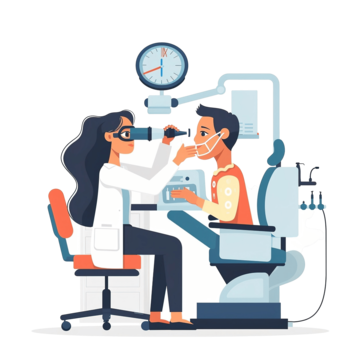

The Department of ENT at Fortis Hospital, Vasant Kunj is led by Padamshree Awardee Dr (Prof) J M Hans, a well-known ENT expert with 40 yrs of experience. Dr Hans is First ENT Surgeon to do an Auditory Brainstem Implant in Children.
More than 3000 successful Cochlear Implant under his name Dr Hans has trained more than 100 surgeons around the globe. The ENT department at Fortis Hospital, Vasant Kunj i provides a broad spectrum of surgical as well as medical services for disorders related to ear, nose, throat, head and neck. The team at Fortis Hospital, Vasant Kunj use the latest equipment and technologies to perform skull base surgeries, endoscopic nasal surgeries, ear and cochlear implants.
The doctors of ENT department at Fortis Hospital, Vasant Kunj are highly efficient and also work in collaboration with other specialities to cater the patient's need. The fully equipped rehabilitation lab of ENT department at the hospital makes the recovery of patients complete.
Why Choose Us
-
Highly Skilled ENT Specialists
-
State-of-the-Art Facilities
-
Patient-Centered Approach
-
Commitment to Quality and Safety
-
Convenient Location and Accessibility
-
Insurance and Financial Assistance
Awards & Accreditations
-
NABH Accredited Hospital
-
Green Certified Operation Theaters
-
Award for Centre of Excellence in Patient Centric Services in Delhi NCR
Treating Patients in Different Age Groups Including :
Our Team of Experts
FAQs
-
What is ENT Surgery?ENT surgery refers to surgical procedures that treat conditions related to the ear, nose, throat, and related structures of the head and neck. These procedures can range from minor surgeries, like sinus surgery, to more complex operations for hearing restoration or treatment of tumors.
-
What conditions do ENT specialists treat?ENT specialists treat a variety of conditions, including: Hearing loss Sinusitis Tonsillitis Sleep apnea Allergies Voice disorders Head and neck tumors
-
What is a cochlear implant?A cochlear implant is a surgically implanted electronic device that provides a sense of sound to individuals with severe to profound hearing loss. It bypasses damaged portions of the ear and directly stimulates the auditory nerve.
-
Who is a candidate for cochlear implants?Candidates for cochlear implants typically include: Individuals with severe to profound sensorineural hearing loss who do not benefit from hearing aids. Children and adults whose hearing loss affects their ability to understand speech. Those with a healthy auditory nerve.
-
What is the procedure for cochlear implant surgery?Cochlear implant surgery usually involves: Consultation and assessment by an ENT specialist and audiologist. Evaluation through imaging tests. The surgical procedure, which usually lasts 1-3 hours, involves placing the internal device in the cochlea (inner ear). Post-operative follow-up for activation and programming of the external processor.
-
How long does the recovery take after cochlear implant surgery?Recovery from cochlear implant surgery varies, but most patients can resume normal activities within a week. The initial activation of the implant typically occurs 2-6 weeks post-surgery, followed by ongoing adjustments and rehabilitation.
-
Can you have both hearing aids and a cochlear implant?Yes, some individuals benefit from using both a cochlear implant in one ear and a hearing aid in the other ear, a configuration known as bimodal hearing. This approach can enhance sound perception and improve speech understanding in noisy environments.



The Department of General Surgery is a specialized medical department that focuses on surgical procedures related to the abdominal area and the digestive tract. General Surgeons at Fortis Hospital, Vasant Kunj are highly skilled and trained to perform a wide range of surgical procedures, both traditional and minimally invasive techniques like laparoscopy.
Abdominal Surgeries: The doctors at Fortis Hospital, Vasant Kunj. The department specializes in surgeries involving various organs within the abdominal cavity. This includes procedures related to the esophagus, gallbladder, stomach, intestines, anus, and more. These surgeries may be required to treat conditions such as gallstones, hernias, tumors, and digestive disorders.
Minimally Invasive Techniques: General surgeons at Fortis Hospital, Vasant Kunj use minimally invasive techniques like laparoscopy. This approach involves making small incisions, which results in shorter hospital stays, reduced pain, and quicker recovery for of patients.
Comprehensive Care: General surgeons and Gastroenterologists at Fortis Hospital are well-equipped and trained to manage the complete spectrum of medical and surgical issues associated with the digestive system. This ensures that patients receive holistic care that includes both medical management and surgical intervention when necessary.
Why Choose Us
-
Expert Our Board Certified Surgeons
-
Patient-Centered Nursing Care
-
Ultra Modern and Advanced Technology
-
Minimally Invasive Techniques
-
Personalized Treatment Plans
-
NABH Certified Nursing Excellence
-
Green Certified Operation Theaters
24X7 Emergency Services
-
24X7 Surgical Care Services
-
24X7 Blood Bank Services
-
24X7 Surgical Expert Care and Nursing Care
Treatment and Procedures
Our Team of Experts
FAQs
-
What types of procedures do general surgeons perform?Appendectomy (removal of the appendix) Cholecystectomy (gallbladder removal) Hernia repair Breast surgery (lumpectomy, mastectomy) Bariatric surgery (weight loss surgery) Surgery for colorectal diseases (e.g., bowel resection) Trauma surgeries Endoscopic procedures
-
What are the risks of general surgery?Infection Bleeding Blood clots Anesthesia complications Delayed healing or scarring Specific risks related to the type of surgery performed
-
What lifestyle changes should I consider after surgery?Depending on the type of surgery, you may need to: Follow a specific diet Gradually increase activity levels Attend physical therapy sessions Avoid certain activities until cleared by your surgeon
-
Is general surgery covered by health insurance?Most health insurance plans cover necessary surgical procedures. It is advised to check with your insurance provider regarding specific coverage, pre-authorization requirements, and out-of-pocket costs. If you have additional questions or concerns, please consult with your healthcare provider or reach out to the surgical office directly for personalized information.
-
Will I need follow-up appointments?Most patients will require follow-up appointments to monitor healing and assess recovery. Your surgeon will schedule these appointments and advice on your specific needs.
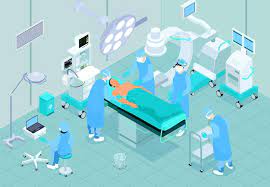
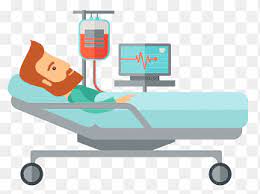
Fortis Hospital, Vasant Kunj has a dedicated Department of Oncology committed to providing high-quality care for cancer patients. A multidisciplinary approach to cancer treatment is indeed crucial for ensuring that patients receive the best possible care.
A multidisciplinary approach typically involves a team of healthcare professionals from various specialties, including medical oncologists, surgical oncologists, radiation oncologists, radiologists, pathologists, nurses, and other support staff. This team collaborates to develop a personalized treatment plan for each patient based on the type and stage of cancer, as well as the patient's overall health and preferences.
Diagnosis and Staging: Accurate diagnosis and staging of cancer are essential to determine the extent of the disease and the most appropriate treatment options.
Treatment Planning: The team works together to develop a tailored treatment plan, which may include surgery, chemotherapy, radiation therapy, immunotherapy, targeted therapy, or a combination of these approaches.
Supportive Care: Cancer treatment can have significant physical and emotional effects on patients. Supportive care services such as pain management, nutrition counseling, and psychological support are often integrated into the treatment plan.
Follow-Up and Survivorship Care: After the active treatment phase, the team continues to monitor the patient's progress, provide follow-up care, and address any potential long-term effects of cancer treatment.
Research and Clinical Trials: Participation in clinical trials may be offered to eligible patients, providing access to cutting-edge treatments and contributing to the advancement of cancer care.
The goal of this multidisciplinary approach is to optimize treatment outcomes, minimize side effects, and improve the overall quality of life for cancer patients. It's important for patients and their families to actively participate in discussions about their treatment plan and to ask questions to ensure they have a clear understanding of their options and what to expect throughout their cancer journey.
Fortis Cancer Institute is dedicated to providing top-notch care for cancer patients. A multidisciplinary approach to cancer treatment is essential, as it ensures that patients receive comprehensive and personalized care tailored to their specific needs.
The use of advanced technologies and techniques is also crucial in the field of oncology, as it can lead to more effective and less invasive treatment options. It's great to hear that your team is committed to staying up-to-date with the latest advancements in cancer care.
Cancer is a challenging journey for patients and their families, and having a compassionate and experienced team to support them can make a significant difference. I'm sure your patients appreciate the dedication and expertise of your oncologists, surgeons, and nurses in their fight against cancer. Keep up the excellent work in providing the best care possible for those in need.
Why Choose Us
-
✅ Highly experienced specialists team members
-
✅ 30+ Years of experience expert
-
✅ 24/7 Hours Services
-
✅ NABL Accredited LAB
-
✅ NABH Certified Nursing Excellence
-
✅ Ambulatory service for emergencies
-
✅ Ranked No. 7 in Delhi’s Best Private Hospital by The Week Magazine Survey, 2019
-
✅ Fortis Hospital Vasant Kunj has been ranked 15th in India list of World Best Hospital by Newsweek
Treatment Procedures
Our Team of Experts
FAQs
-
Is oncologists or Cancer Doctors are Same ?Yes, Oncologists or Cancer Doctors are Same ! There are three main types of oncologists: Medical Oncologist: Treats cancer with medication, including chemotherapy, hormone therapy, and immunotherapy. Radiation Oncologist: Uses radiation therapy to treat cancer. Surgical Oncologist: Performs surgery to remove tumors and surrounding tissue.
-
What are the common signs and symptoms of cancer?Common signs and symptoms can include: Unexplained weight loss Fatigue Persistent pain Changes in skin Unusual bleeding Persistent cough or hoarseness Changes in bowel or bladder habits Lumps or swelling in the body
-
Is there a Cure for Oncology?Whether a person's cancer can be cured depends on the type and stage of the cancer, the type of treatment they receive, and other factors. Some cancers are more likely to be cured than others. But each cancer must be treated differently. There is no single cure for cancer.
-
How is cancer diagnosed?Cancer diagnosis typically involves: Medical History & Physical Examination: Assessing symptoms and risk factors. Imaging Tests: X-rays, CT scans, MRIs, and PET scans to visualize tumors. Biopsy: Taking a sample of tissue for laboratory analysis. Blood Tests: Evaluating tumor markers and general health.
-
How can I find the right oncologist or cancer center?To find the right oncologist or cancer center, consider: Referrals from your primary care physician or healthcare provider. Researching cancer centers accredited by organizations like the American College of Surgeons or NCI-designated Comprehensive Cancer Centers. Looking for specialists with experience in your specific type of cancer.
-
What can I expect during chemotherapy?Chemotherapy can cause side effects such as nausea, fatigue, hair loss, and increased risk of infection. The specific side effects depend on the drugs used and individual response. Your healthcare team will provide guidance on managing these side effects.

Fortis Hospital, Vasant Kunj is your trusted partner for comprehensive Obstetrics and Gynaecology care in Delhi NCR. With a team of leading specialists and state-of-the-art facilities, we are dedicated to providing the highest quality care for women at every stage of life, from adolescence to menopause and beyond.
Comprehensive Women’s Wellness: Beyond medical care, we offer holistic services including nutrition counseling, prenatal yoga, and mental health support, ensuring complete wellness during pregnancy and throughout a woman’s life.
Why Choose Us
-
Top-Rated Gynaecologists and Obstetricians
-
Advanced Maternity and Gynaecology Services
-
Cutting-Edge Technology & Infrastructure
-
Patient-Centric Approach
-
Prenatal and Postnatal Care
-
Best NICU Facility
Awards & Accreditations
-
Round the Clock Obstetrics & Gynaecology Emergency Services.
-
NABH Accredited Hospital NABH Digital Accredited NABL Certified Lab
-
Radio City Award for Centre of Excellence in Patient Centric Services In Delhi NCR
Key Services in the Department of Obstetrics and Gynaecology
Our Team of Experts
FAQs
-
What is the difference between an obstetrician and a gynecologist?An obstetrician specializes in pregnancy, childbirth, and the postpartum period. They provide care to women during pregnancy and deliver babies. A gynecologist, on the other hand, specializes in the female reproductive system, diagnosing and treating related disorders.
-
What are the common signs of pregnancy?Common signs of pregnancy include missed periods, nausea or vomiting (often referred to as morning sickness), frequent urination, fatigue, breast tenderness, and mood swings. However, these symptoms can also be related to other conditions, so it's best to take a pregnancy test or consult a gynaecologist.
-
What tests are performed during pregnancy?Common tests during pregnancy include blood tests (to check for anemia, infections, and blood type), urine tests, ultrasound scans (to assess fetal growth and development), and screening tests (for conditions such as Down syndrome and gestational diabetes).
-
What are common menstrual problems?Common menstrual problems include irregular periods, heavy menstrual bleeding (menorrhagia), painful periods (dysmenorrhea), and skipped periods. If you experience significant discomfort or changes, consult a gynaecologist.
-
What is menopause and when does it occur?Menopause is the time in a woman's life when menstrual periods permanently stop, marking the end of reproductive capability. It typically occurs between ages 45 and 55, but can vary. Common symptoms include hot flashes, night sweats, and mood changes.
-
What is the importance of prenatal care?Prenatal care is crucial for monitoring the health of both the mother and developing fetus throughout pregnancy. Regular check-ups help identify any potential risks, manage health issues, and provide education about pregnancy and childbirth.
-
What is endometriosis?Endometriosis is a condition where tissue similar to the lining inside the uterus grows outside of it. It can cause pelvic pain, heavy periods, and can affect fertility. Diagnosis often involves imaging tests or laparoscopy.
